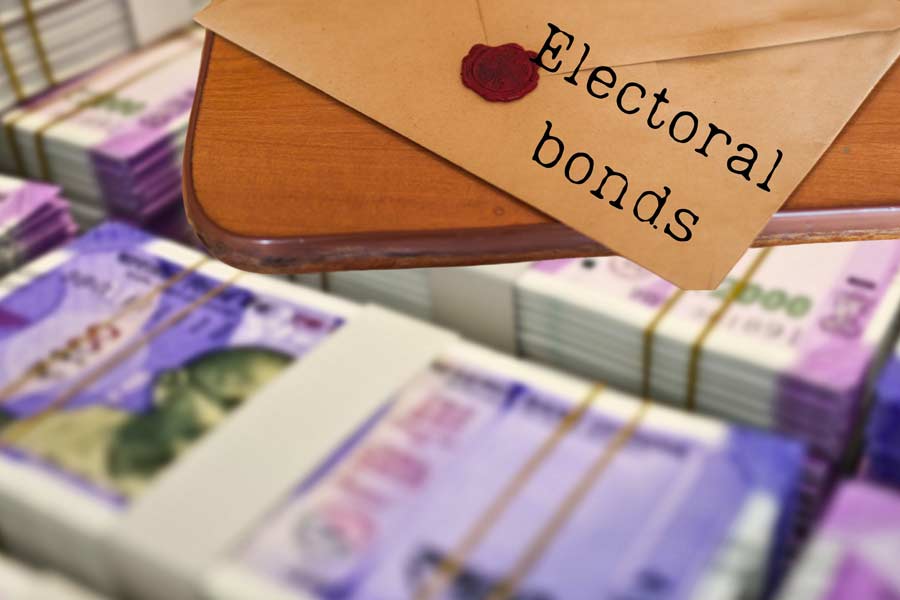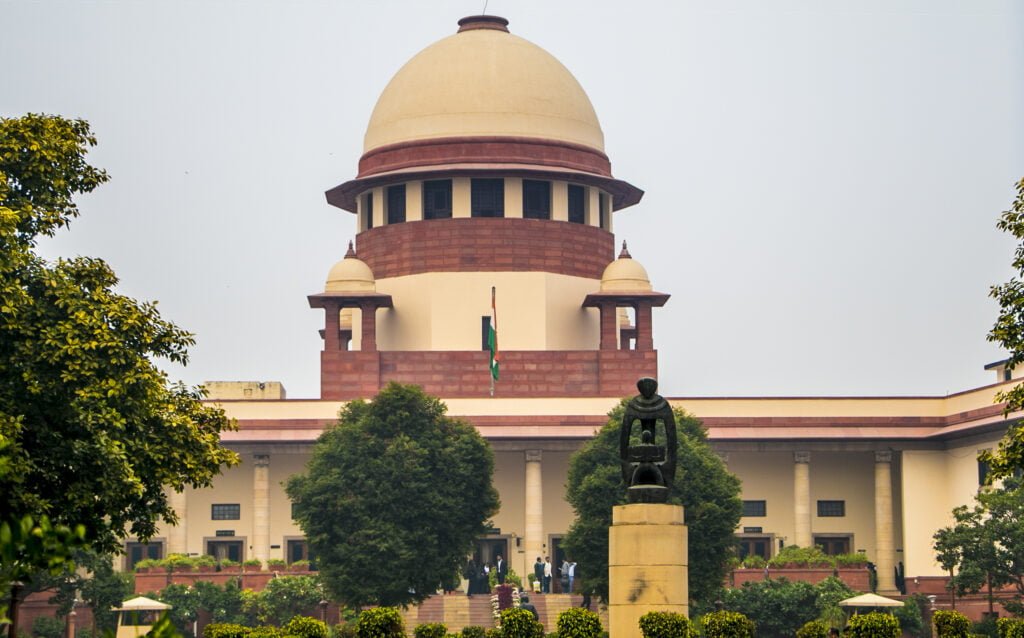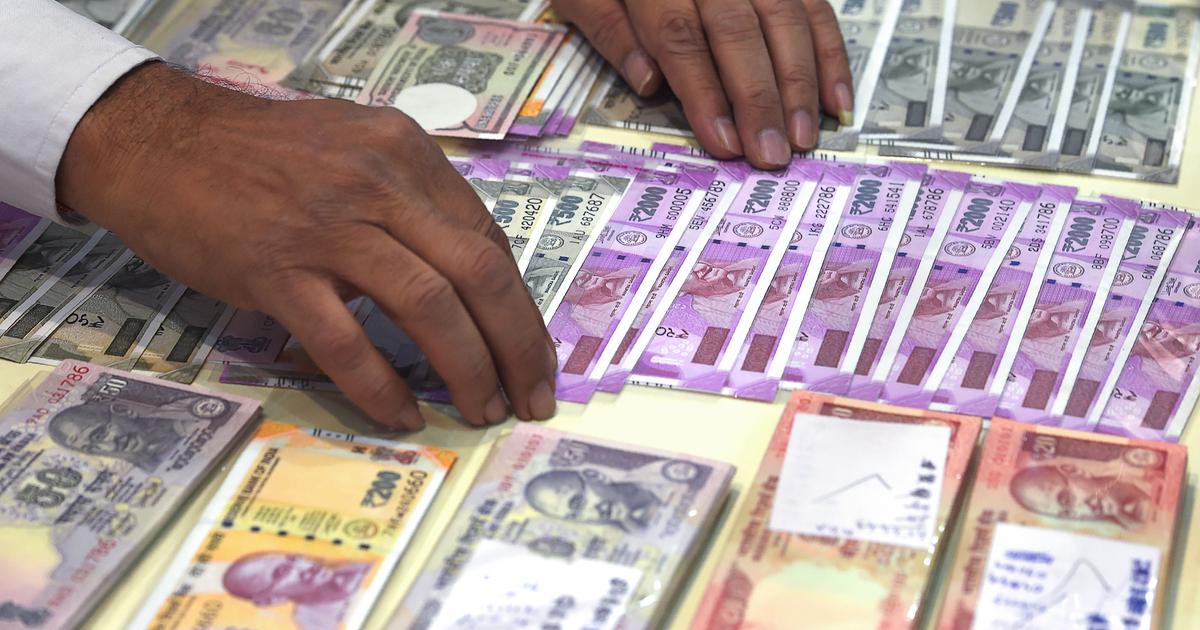In 2018, the Indian government introduced electoral bonds with the promise of revolutionising political funding and curbing the influence of black money in politics. However, what began as a well-intentioned endeavour soon spiralled into a maelstrom of controversy and criticism.
The inception of electoral bonds marked a watershed moment in India’s political landscape. Conceived as bearer instruments, electoral bonds aimed to provide a transparent mechanism for individuals and corporations to contribute to political parties. Launched amidst much fanfare by the Ministry of Finance in 2018, these bonds were heralded as a panacea for the systemic malaise of opaque political funding.
Electoral bonds, available in denominations ranging from Rs 1,000 to Rs 1 crore, were accessible to citizens of India and domestic entities. Sold exclusively through designated branches of the State Bank of India (SBI), these bonds offered anonymity to donors, shielding them from potential repercussions. The intricate process of purchasing and utilising electoral bonds underscored the government’s commitment to formalising political contributions and enhancing transparency.
While proponents extolled the virtues of electoral bonds in promoting transparency and accountability, sceptics raised valid concerns about their efficacy and integrity. Chief among these concerns was the opacity surrounding the source of funds. The anonymity afforded by electoral bonds raised suspicions of potential misuse, including the laundering of illicit money into the political ecosystem. Moreover, the unequal distribution of funds, with the ruling party reportedly receiving a disproportionate share, cast a shadow of doubt on the level playing field in electoral contests.
Legal challenges and Judicial scrutiny
The controversy surrounding electoral bonds soon found its way into the hallowed corridors of the judiciary. Legal challenges mounted against the scheme questioned its constitutional validity and its compatibility with democratic principles.
The Supreme Court, tasked with adjudicating on the matter, convened a five-judge bench to deliberate on the intricacies of electoral bonds and their implications for India’s democratic ethos. The referral of the issue to a higher judicial authority underscored the gravity of the concerns raised and the imperative for judicial intervention.

A deeper dive into the data unveiled startling insights into the role of electoral bonds in shaping India’s political landscape. Reports revealed a substantial influx of funds through electoral bonds, with the Bharatiya Janata Party (BJP) emerging as the primary beneficiary. The disproportionate share of donations received by the ruling party raised pertinent questions about the sanctity of political financing and the integrity of electoral processes.
In February 2017, the then Finance Minister Arun Jaitley announced that donations made through electoral bonds would be tax-deductible, aiming to incentivise contributions while providing tax exemptions to recipient political parties upon filing returns. However, concerns persist regarding the potential misuse of electoral bonds and their implications for tax evasion and money laundering.
The Reserve Bank of India (RBI) has voiced reservations about the scheme, warning of its potential to undermine faith in Indian banknotes and inadvertently facilitate money laundering. Additionally, the Election Commission has emphasised the importance of disclosure and transparency in political funding, highlighting the need for stringent regulatory oversight to safeguard the integrity of India’s electoral processes.
The BJP Controversy and Supreme Court Verdict
The controversy surrounding electoral bonds took a significant turn when the Supreme Court of India delivered its verdict on February 15, 2024. The court’s decision struck down the electoral bonds scheme as unconstitutional, citing violations of fundamental rights such as freedom of speech and expression, as well as the right to information. This verdict had far-reaching implications, particularly for the ruling Bharatiya Janata Party (BJP), which had been the primary beneficiary of the scheme since its inception in 2018.

The Supreme Court’s constitution bench, comprising five judges, delivered a landmark judgment, declaring the electoral bonds scheme unconstitutional. The court’s decision was based on the grounds that the scheme violated fundamental rights guaranteed by the Indian Constitution, including the right to freedom of speech and expression, as well as the right to information. The court emphasised the need for transparency and accountability in political funding, highlighting the deficiencies of the electoral bonds scheme in ensuring these principles.
The verdict dealt a significant blow to the BJP, which had been the biggest beneficiary of the electoral bonds scheme. Since its introduction in 2018, the BJP has reportedly received nearly 13 billion rupees in funding through electoral bonds in the financial year 2022-23 alone. The scheme had emerged as the preferred mode for big corporations to anonymously donate to political parties, with the BJP reaping substantial benefits from this arrangement.
In response to the Supreme Court’s verdict, BJP spokesperson Nalin Kohli defended the electoral bonds scheme, stating that it was introduced by the government to address concerns regarding black money in elections. He accused opposition parties of politicising the issue, attributing their criticism to a lack of alternatives to Prime Minister Narendra Modi’s leadership. Kohli’s statements reflected the BJP’s stance on the matter, portraying the party as a victim of political vendetta rather than addressing the substantive concerns raised by the court’s judgment.
Opposition parties, including the Congress, seized upon the Supreme Court’s verdict to level allegations of misuse and lack of transparency against the BJP-led government. They criticised the government for using the State Bank of India (SBI) as a shield to conceal details of electoral bond transactions. The Congress accused the Modi government of resorting to dubious dealings through electoral bonds, citing the court’s judgment as evidence of the scheme’s illegality and unconstitutionality.
The Supreme Court’s verdict on electoral bonds underscored the importance of upholding democratic principles and ensuring transparency in political funding. By striking down the scheme as unconstitutional, the court reaffirmed the fundamental rights enshrined in the Indian Constitution and emphasised the need for accountability in the electoral process. The verdict had significant implications for the BJP, raising questions about the party’s reliance on opaque funding mechanisms and its commitment to democratic values.
The road ahead
As India grapples with the complexities surrounding electoral bonds, a pressing question looms: what lies ahead? The imperative for robust reforms to enhance transparency and accountability in political funding has never been more acute. Addressing the concerns posed by electoral bonds necessitates a multifaceted approach, encompassing legislative amendments, judicial scrutiny, and public discourse. Only through concerted efforts can India safeguard the foundational principles of democracy and restore public faith in the electoral process.

The Supreme Court’s verdict on electoral bonds represented a pivotal moment in India’s democratic journey. The judgment underscored the imperative of transparency and accountability in political funding, while also highlighting the challenges posed by opaque mechanisms such as electoral bonds. As the nation grappled with the fallout from the court’s decision, questions lingered about the future of political funding reform and the BJP’s electoral strategy in the wake of this setback. Ultimately, the verdict served as a reminder of the judiciary’s role in upholding democratic principles and safeguarding the integrity of India’s electoral processes.
About the author(s)
Maria Mabood is a 24-year-old graduate with both Bachelor's and Master's degrees in Economics from Jamia Millia Islamia. She is an aspiring researcher, passionate about delving into the intricacies of economic theory.
Her enthusiasm lies in both writing and research, where she aims to combine her academic knowledge with creative expression. She is eager to contribute valuable insights to diverse topics and explore new horizons through collaborative efforts.





